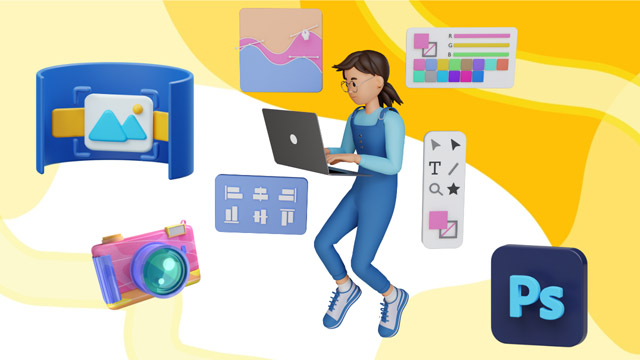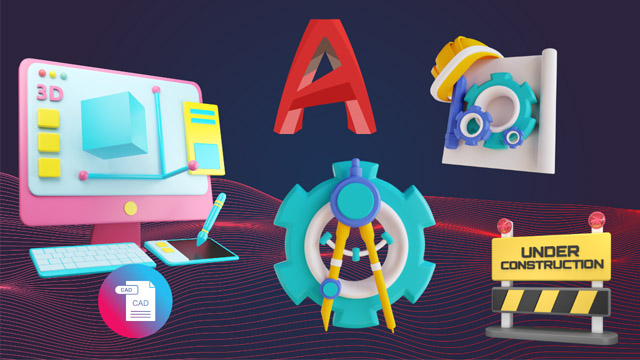This course opens door to various career opportunities such as Print Media Designer, DTP Artist etc.

DTP (Adobe)
MKCL’S KLiC DTP Adobe course will lead the Learner to a promising career path in Printing Industry. She/he will be able to design advertisements, brochures, Newspaper layouts, book designs etc.
What you'll learn ?
Syllabus
- Basics of Photoshop
- The Working Place
- Customizing
- Image and Color Modifications
- Tools
- Using the Brush and Paint
- Working with Selections
- Scaling
- Knowing the Layers
- Color Adjustments
- Filter Gallery
- Playing with Palettes
- Getting Started
- Creating and Viewing a Document
- Managing Pages and Books
- Managing Text
- Formatting Text
- Placing and Working with Graphics
- Working with Objects
- Managing and Transforming Objects
- Working with Points and Paths
- Applying and Managing Colors
- Working with Tables
- Working with Styles
- Finalizing Document
- Exporting Document
- Printing a Document
- Setting Preferences
- Data Merge and Assets Handling
- Basics of Illustrator
- Introduction
- The Working Place
- Customizing
- Tools
- Layer and layer options
- Pen, Pencils and Paths
- Using the Brush and Paint
- Specialized Tools
- Getting Creative with Types
- Using the Symbols
- Designing Graphics
- Effects and Filters
- Playing with Palettes
- Exporting
- Working with templates
- Shortcut Keys for smart work
- Building blocks of a publication – Elements of a print-ready output
- Types of design required in different mediums
- Data merging using Excel, Word etc., - images insertion, bulk images
- Competencies and techniques for Smart and Impressive work
Adobe Photoshop
Skills: The Working Place, Customizing, Image and Color Modifications, Tools, Using the Brush and Paint, Working with Selections, Scaling, Knowing the Layers, Getting Creative with Types, Filter Gallery, Playing with Palettes
Outputs: Image color corrections, Photo Collage, Photo Manipulations, Image enhancement with filters
Wedding Card

Poster Design

Adobe Illustrator
Skills: Working Place, Customizing, Tools, Layer and layer options, Pen, Pencils and Paths, Using the Brush and Paint, Specialized Tools, Getting Creative with Types, Using the Symbols, Designing Graphics, Effects and Filters, Playing with Palettes
Outputs: Gift Voucher, Package/Wrapper Design, Business Card, Illustration, Flyer, Coupon, Infographic
Business Card

Coupon

Adobe InDesign
Skills: Creating and Viewing a Document, Managing Pages and Books, Managing Text, Formatting, Working with Objects, Working with Points and Paths, Case Study- Book Cover, Applying and Managing Colors, Working with Tables, Working with Styles, Printing and Outputting a Document, Setting Preferences
Outputs: Advertisement, Story books, Flyer, Poster, Certificate, Menu Card, Magazine Cover Page
Menu Card

Magzine Cover

Certificate (YCMOU Recognised Courses)
- KLiC 120 hour courses are recognised by Yashwantrao Chavan Maharashtra Open University (YCMOU).
- MKCL provides certificate to the KLiC learner after his/her successful course completion.
- Yashwantrao Chavan Maharashtra Open University (YCMOU) provides mark sheet to successfully passed KLiC learners (Jurisdiction: Maharashtra).
- Please Refer Fee Structure for YCMOU Certification
Academic Approach
The Academic Approach of the course focuses on the “work centric” education i.e. begin with work (and not from a book !), derive knowledge from work and apply that knowledge to make the work more wholesome, useful and delightful. The ultimate objective is to empower the Learner to engage in socially useful and productive work. It aims at leading the learner to his/her rewarding career as well as development of the society.
Learning methodology
- Learners are given an overview of the course and its connection to life and work.
- Learners are then exposed to the specific tool(s) used in the course through the various real-life applications of the tool(s).
- Learners are then acquainted with the careers and the hierarchy of roles they can perform at workplaces after attaining increasing levels of mastery over the tool(s).
- Learners are then acquainted with the architecture of the tool or Tool Map so as to appreciate various parts of the tool, their functions and their inter-relations.
- Learners are then exposed to simple application development methodology by using the tool at the beginner’s level
- Learners then perform the differential skills related to the use of the tool to improve the given ready-made outputs.
- Learners are then engaged in appreciation of real-life case studies developed by the experts.
- Learners are then encouraged to proceed from appreciation to imitation of the experts.
- After imitation experience, they are required to improve the expert’s outputs so that they proceed from mere imitation to emulation.
- Finally, they develop the integral skills involving optimal methods and best practices to produce useful outputs right from scratch, publish them in their ePortfolio and thereby proceed from emulation to self-expression.
Evaluation Pattern
Evaluation Pattern of KLiC Courses consists of 4 Sections as per below table:
| Section No. | Section Name | Total Marks | Minimum Passing Marks |
|---|---|---|---|
| 1 | Learning Progression | 25 | 10 |
| 2 | Internal Assessment | 25 | 10 |
| 3 | Final Online Examination | 50 | 20 |
| Total | 100 | 40 | |
| 4 | SUPWs (Socially Useful and Productive Work in form of Assignments) | 5 Assignments | 2 Assignments to be Completed & Uploaded |
MKCL’s KLiC Certificate will be provided to the learner who will satisfy the below criteria:
- Learners who have successfully completed above mentioned 3 Sections i.e. Section 1, Section 2 and Section 3
- Additionally, learner should have completed Section 4 (i.e. Section 4 will comprise of SUPWs i.e. Socially Useful and Productive Work in form of Assignments)
- Learner has to complete and upload minimum 2 out of 5 Assignments
KLiC Courses Fee Structure from 01 July, 2025 Onwards
KLiC 120 hour course fee applicable from 01 July, 2025 all over Maharashtra| KLiC Course Duration | MFO: MKCL Share (Including 18% GST) |
ALC Share (Service Charges to be collected by ALC) |
MKCL Certificate | YCMOU Marksheet |
|---|---|---|---|---|
| 120 hours (Without YCMOU Marksheet) | Rs. 1,000/- | Rs. 5,000/- | Available | Not Available |
| 120 hours (With YCMOU Marksheet) | Rs. 1,118/- | Rs. 5,000/- | Available | Available |
* Above mentioned fee is applicable for all Modes of KLiC Courses offered at Authorised Learning Center (ALC) and at Satellite Center
* Total fee is including of Course fees, Examination fees and Certification fees
* MKCL reserves the right to modify the Fee anytime without any prior notice
KLiC Courses Fee Structure upto 30 June, 2025
From 01 January 2025 onwards, the fees for all KLiC courses in ALCs of Mumbai Metropolitan Regional Development Authority (MMRDA), Pune Metropolitan Regional Development Authority (PMRDA) and Rest of Maharashtra will be applicable as shown in the table below:
KLiC Courses of 120 Hours:| Mode | Total Fee (Rupees) |
Single Installment (Rupees) |
Two Installments (Rupees) |
| Single Installment | 6000/- | 6000/- | N/A |
| Two Installments | 6200/- | 3100/- | 3100/- |
Total fee is including of Course fees, Examination fees and Certification fees
* Above mentioned fee is applicable for all Modes of KLiC Courses offered at Authorised Learning Center (ALC) and at Satellite Center
* Total fee is including of Course fees, Examination fees and Certification fees
* MKCL reserves the right to modify the Fee anytime without any prior notice



